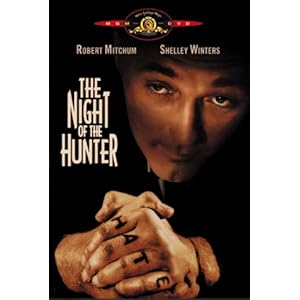 One thing we should discuss before we get too deep into this project is what constitutes a horror film. Is a horror film the tale of a mindless, hulking cypher dismembering horny coeds? Is it a yarn about the malevolent force systematically dispatching the crew of a futuristic spaceship, a monster terrorizing the city, or suburban teens trying to figure out what’s making that noise in the woods? Is it the film that puts the supernatural horrors outside to suggest that, as our heroes slowly turn on each other, perhaps humanity is the real enemy?
One thing we should discuss before we get too deep into this project is what constitutes a horror film. Is a horror film the tale of a mindless, hulking cypher dismembering horny coeds? Is it a yarn about the malevolent force systematically dispatching the crew of a futuristic spaceship, a monster terrorizing the city, or suburban teens trying to figure out what’s making that noise in the woods? Is it the film that puts the supernatural horrors outside to suggest that, as our heroes slowly turn on each other, perhaps humanity is the real enemy?
The answer is yes. All of these are horror movie tropes, and they’re all well-worn. Truth is, what constitutes a horror movie really depends on the viewer; there are films that are horror movies in form, and there are films that are horror movies in reality. Enter Charles Laughton’s 1955 masterpiece The Night of the Hunter.
It’s a bit of an anomaly, this film. It was noted actor Laughton’s only directorial effort, largely because it was passed over by audiences and critics upon release. But film history has shown that if the material is worth it, we’ll come around eventually — consider how long we’ve been mounting Rocky Horror midnight showings, or the legs that The Shawshank Redemption sprouted in the home video market, despite those films flopping theatrically — and the woefully ahead of its time Night of the Hunter is a Gothic, shadowy potboiler that holds up remarkably a full half-century later.
It’s a grim, noirish fairytale, a yarn about a boy with a secret about his departed father; but, more to the point, Robert Mitchum. Yes, the barrel-chested and hard-boiled Robert Mitchum is easily the star of the show here — see, Night of the Hunter is something of a progenitor of the slasher film. And, as such, we most vividly remember the villain, and not the victim — who among us, after all, attributes the success of Nightmare on Elm Street to Heather Langenkamp, or most notably remembers Friday the 13th for Kevin Bacon’s tour-de-force performance? No — but we remember Freddy Kreuger sneering and calling everyone bitches from the deepest recesses of their dreams, and we remember Kevin Bacon getting post-coitally harpooned through the trachea. Night of the Hunter is no exception, a full 20 years before the slasher phase of horror cinema really revved up, and Robert Mitchum’s wolf in sheep’s clothing is a terrific antagonist.
A disorienting, sun-baked game of tense cat-and-mouse ensues with Mitchum’s errant preacher Harry Powell in hot pursuit of his old cell-mate’s children. He’s pure evil, cloaked in the protective armor of the cloth, looming around corners and in the shadows. Tellingly, it’s his love of money that drives the horror — in search of his old jail buddy’s hidden fortune, Harry is willing to kill. On sweltering summer nights, Harry lurks outside of houses, singing hymns of the church in his gravelly drawl. His shadow plays upon walls and taunts children in their sleep. Laughton gets a lot of mileage out of shadow play here, drawing upon film noir and German Expressionism to create a disorienting, delirious atmosphere. It’s a virtually bloodless film, but it chills to the bone — as shadows creep Nosferatu-like up dark stairwells and corpses lie serenely at the bottom of ponds,The Night of the Hunter outs itself as a legitimate horror film, and one to which countless others owe a massive debt. Better hope Reverend Harry doesn’t come to collect it.
http://youtu.be/e5AKK_om1VU
Extra Credit: Harry Powell wasn’t Robert Mitchum’s only iconic villain — you may remember Max Cady as the main antagonist in Martin Scorcese’s psychosexual fever dream Cape Fear, but Mitchum originated the role in J. Lee Thompson’s 1962 original. Scorcese piled on layers of psychodrama and moral ambiguity (and made a great film), but for primal, gut-level scares, it’s hard to beat Mitchum’s sexual predator emerging shirtless from the shadows, ready to offend again.
More 31 Days of Halloween:
Day 1: May
